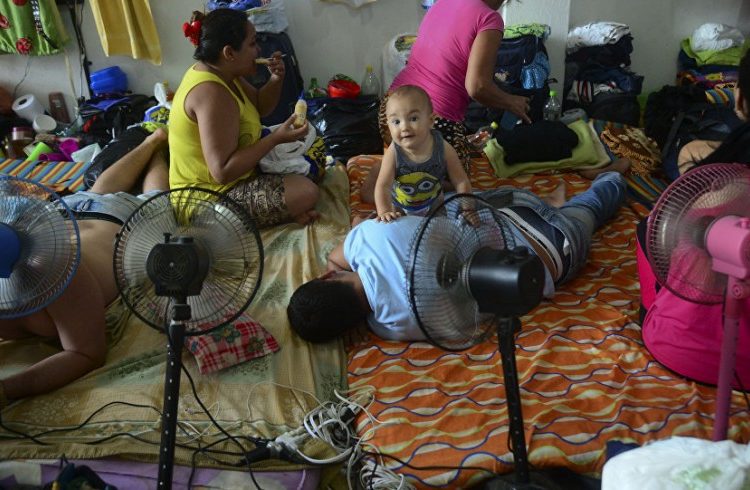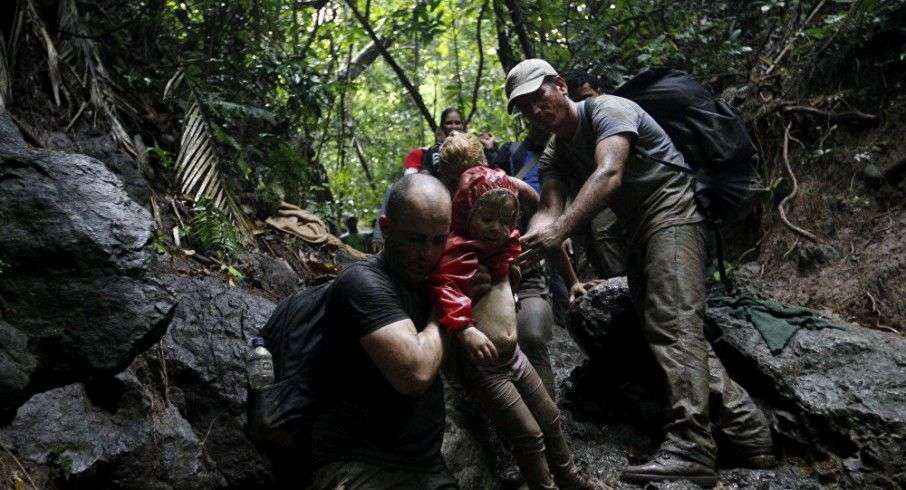The State Department in Washington received a letter signed by the ministers of foreign affairs from nine Latin American countries last Monday August 29 asking the US government—in the person of the Secretary of State, John Kerry—for a review of its migratory policy regarding Cuba.
Dated on August 16, the missive was impelled by “the serious humanitarian crisis endured by the people of Cuban nationality in mobility situation,” and it considers that both the Cuban Adjustment Act and the policy of “feet dry, feet wet” represent “a stimulus to the chaotic, irregular, and unsafe flow of Cuban citizens” to the United States.
1. Cancilleres de 9 países de región firmamos carta instando a EEUU a revisar su política migratoria hacia cubanos pic.twitter.com/uhGpIqmZX2
— Guillaume Long (@GuillaumeLong) 29 de agosto de 2016
Actually, the signers are the ministers of foreign affairs of Colombia, Costa Rica, Ecuador, El Salvador, Guatemala, Mexico, Nicaragua, Panama, and Peru—countries that make up the route that in the last few months has led by land thousands of Cubans toward the North.
It is—as they say—“an issue that involves all of us and, due to its regional reach, it deserves a coordinated answer.” They appeal to their “common commitment to look for ways out and answers in a coordinated, fast, and effective manner.” Supported by this argument, they propose a high-level meeting to “review this conflict.”
Carta a @JohnKerry fue entregada hoy por nuestro Emb. en EEUU. Nos congratulamos que gobiernos variopintos como… pic.twitter.com/4isFDOYJCx — Guillaume Long (@GuillaumeLong) 29 de agosto de 2016
In the letter, they refer to this crisis as a topic “known by everybody,” and whose aggravating circumstance is the fact that Cuban citizens are risking their lives.
As expressed in detail, “(…) extremely vulnerable, they become victims of the Mafia devoted to traffic of migrants, sexual exploitation, and collective assaults.”
They point out this “complex panorama endangers their policies and efforts, aimed at consolidating safe boundaries, free of transnational organized crime, particularly the one related to trade of people and traffic of migrants.”
The ministers consider that “analyzing and reviewing the current ruling policies (…) would be a first step to prevent the worsening of this complex situation, as well as part of a definite solution to ensure an ordered and regular migration in our region.”
Before the imminent deportation, whole families embarked on the journey through the jungle of Darién, an area connecting Colombia and Panama.
Their arguments are essentially humanitarian: “Human mobility and migratory exchange must be focused on respecting the human rights of migrants, on enabling mechanisms to protect them, and on diminishing the risks linked to irregular migration (…),” so they can “travel to the destination they have chosen in an honorable, ordered, safe, and even direct way.”
Ecuadorian Minister of Foreign Affairs Guillaume Long—who announced in a press conference the dispatch of the letter, initially written as a consensus by his country and Colombia—underlined that this is the answer of the nine countries, not only to the issue affecting the safety of Cubans, but also to aspects like nation sovereignty and homeland security.
“The fact that nine ministers of affairs had signed this letter proves the strength of the feeling experienced in Latin America regarding the way the US policy has created a migratory crisis in our region,” he added.
In addition to the humanitarian reasons, Long added that they consider, “this is a terrible act of discrimination; meanwhile our migrants have to hide and often live for decades under the threat of deportation, Cuban citizens—if they set foot in American territory—get the residence after a year and can aspire to get the nationality after five years of residency. This injustice must end for the sake of everyone.”
On the one hand, the policy of “feet dry, feet wet” establishes a difference between Cuban emigrants blocked at sea and returned to Cuba, and those who reach the American territory and are supported to regularize their situation.
https://www.youtube.com/watch?v=uL06owMvVqQ
On the other hand, the Cuban Adjustment Act is an American federal law from 1966 granting any Cuban native or citizen a “preferential” treatment that distinguishes them from the rest of the foreigners that arrive in the United States. Its end became a possibility as part of the agenda of the new US policy towards Cuba, after 17D. Ever since, a lot of Cubans have felt that the passage of time plays against their plans of emigrating.
Moments of the Crisis
Last April, according to Costa Rican Vice-Minister Alejandro Solano, the position of Mexico was clear when pointing out that the nation would not serve as new shuttle flights to make easier the path of Cubans to the US, as it has previously done in February and March, 2016.
https://www.youtube.com/watch?v=ke_Pr-Rql60
At the beginning of this month, the Colombian Government reported that it would deport the Cubans in irregular situation—concentrated in the last weeks in Turbo, northeast of the country—to Cuba or Ecuador. Shunning the measure, hundreds of illegal migrants decided to cross the Colombian jungle of the Darién in Central America and to go along their course north.
According to the daily newspaper La Prensa, it is estimated that there are 300 Cubans between the border range and Panama; however, right now there is no record of the exact amount of Cubans en route through the way towards the United States.
The crisis motivating the letter of the ministers broke out in November 2015, when the Nicaraguan Army reacted violently against almost two thousand Cuban emigrants arrived in the border of that country, right after a humanitarian visa had been granted by Costa Rica.
In those days, the American ambassador in Costa Rica, Fitzgerald Haney, said that, “there is no reason to believe we are thinking differently. The Cuban Adjustment Act has been in force for more than fifty years, we do not see why this should change.”
“It is important to understand that our administration does not have plans of modifying the migratory policy regarding Cuba, including the Cuban Adjustment Act,” emphasized then the consul general of the United States Embassy in Havana, Brendan Mullarkey.
Almost a year after, with a real migratory and humanitarian crisis in course, will this answer keep on?











